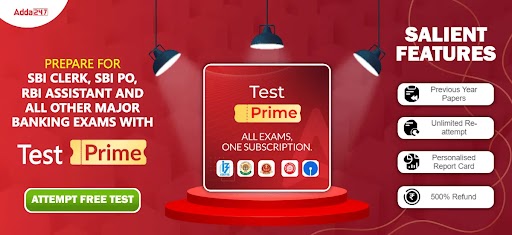Titled Education 4.0 Report’, the report explains how technology can address learning gaps and make education accessible to all. The information was published under Education 4.0 India initiative, launched in May 2020 and has convened over 40 partners from the education technology, government, academic and start-up communities.
Buy Prime Test Series for all Banking, SSC, Insurance & other exams
The Pandemic Effect:
Even as the Covid-19 pandemic has subsided in most parts of the world, the school-to-work transition process is still facing significant hurdles in India, a World Economic Forum (WEF) report stated.
About The Education Market:
India is the second largest market for online education after the US. With conducive policies and initiatives of the government, such as the National Education Policy 2020 and over 5000 EdTech start-ups across the learning lifecycle, the current education environment is potent for digital transformation. But, a lack of coordinated efforts has resulted in an isolated skilling ecosystem that has not been able to achieve its maximum potential, the WEF report said.
India Specific Data:
India has more than 60 million secondary and higher secondary students, but 85 per cent of schools are yet to implement vocational courses as part of their curriculum. School-to-work (S2W) transition refers to making students job-ready in a rapidly evolving employment landscape. It added that the S2W transition process still faces major hurdles, such as a lack of trainers, inadequate resources and infrastructure, poor integration with the mainstream school curriculum, and poor linkages between localised skill gaps and vocational courses. The report noted that many students and parents consider vocational education the second-best option to mainstream education.
The Career Backlog:
“Employers expect students to have a high degree of competencies, skills and knowledge relevant to their work. They also prefer strong communication skills, teamwork, and problem-solving and critical-thinking abilities,” it stated.
According to the report, school pedagogy is currently designed with no reference to industry needs since there are no formal channels for industry participation. “Further, credits cannot be transferred between formal and informal education streams, so students who want to pursue higher education after vocational courses (or vice-versa) face difficulty linking their credits. This discourages mobility between the two streams,” it said.
Enhancing opportunities for career awareness and exposure through internships and apprenticeships allows credit transferability to enable students to transfer between formal and informal channels of education and training and provide experiential learning for holistic development through STEM-based courses, language learning and life-skills coaching are among the recommendations made in the report.
A Highly Recommended Article Related To This Story:
56 Million Indians may have turned Poor in 2020 due to pandemic: World Bank
Find More Ranks and Reports Here



 Paris Olympics 2024 Medal Tally, India M...
Paris Olympics 2024 Medal Tally, India M...
 Which District of Madhya Pradesh is Famo...
Which District of Madhya Pradesh is Famo...
 EC Signs Electoral Cooperation Pact with...
EC Signs Electoral Cooperation Pact with...

